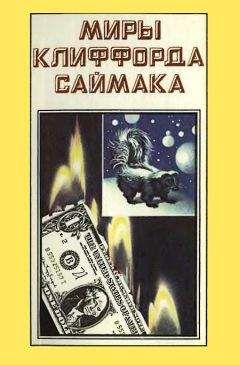101
Menand, op. cit., pp. 357–358.
Rorty, op. cit., p. xviii.
Ibid., p. 30.
Ibid., p. 31.
Ibid., p. 33.
Ibid., p. 34.
Ibid., p. 36.
Geoffrey Hodgson and Thorbjorn Knudsen, Darwin’s Conjecture: The Search for General Principles of Social and Economic Evolution, Chicago and London: Chicago University Press, 2010, pp. 229–232.
Ibid., p. 50.
John J. Stuhr, 100 Years of Pragmatism: William James’s Revolutionary Philosophy, Bloomington, Ind.: Indiana University Press, 2010, chapters 1 and 10.
Rorty, op. cit., p. 57.
Ibid., p. 77.
Ibid., p. 78.
Jay Martin, The Education of John Dewey: A Biography, New York: Columbia University Press, 2002, pp. 439ff and 502.
Rorty, op. cit., p. 83.
Ibid., p. 87.
Henry Samuel Levinson, Santayana, Pragmatism and the Spiritual Life, Chapel Hill and London: University of North Carolina Press, 1992, p. 174.
Levinson, op. cit., p. 155.
Ibid., p. 148.
Ibid., p. 90.
Ibid., p. 248.
Marianne S. Wokeck and Martin A. Coleman (co-eds), The Life of Reason, or, The Phases of Human Progress, by George Santayana, Introduction by James Gouinlock, Cambridge, Mass.: MIT Press, 2011, pp. 81, 118–119, 183–184.
Rorty, op. cit., p. 178.
Ibid., pp. 124, 131.
Ibid., p. 51.
Ibid., p. 138.
Ibid., p. 36.
Ibid., p. 234.
Wokeck and Coleman, op. cit., pp. 150–151, 188.
Rorty, op. cit., p. 177. предыдущих и последующих разделах, взяты из моих интервью с ним.
Everett W. Knight, Literature Considered as Philosophy: The French Example, London: Routledge & Kegan Paul, 1957, p. 19.
Knight, op. cit., pp. 21–24.
Ibid., p. 36.
Ibid., p. 43.
Ibid., p. 45.
Ibid., p. 54.
Ibid., p. 77.
Michael Roberts, T. E. Hulme, London: Faber, 1938, p. 83.
Roberts, op. cit., p. 248.
Karen Csengeri (ed.), The Collected Writings of T. E. Hulme, Oxford: Clarendon Press, 1994, p. 140.
Психологические исследования последних лет подтверждают идею Бергсона о двух Я. Скажем, в книге «Мышление – быстрое и медленное» (2011) лауреат Нобелевской премии Даниэль Канеман, занимавшийся экономическим поведением, делит поведение на две категории: Система 1 и Система 2, где первая более инстинктивная и интуитивная, а вторая рефлексивная и рациональная.
Tom Regan, Bloomsbury’s Prophet: G. E. Moore and the Development of His Moral Philosophy, Philadelphia: Temple University Press, 1986, p. 35.
Regan, op. cit., p. 8.
Ibid., p. 23.
Ibid., p. 28.
Ibid., p. 169.
Thomas Baldwin, G. E. Moore, London: Routledge, 1990, part III. See also Paul Levy, G. E. Moore and the Cambridge Apostles, London: Weidenfeld&Nicolson, 1979.
Regan, op. cit., p. 202.
Ibid., pp. 209–210.
Ibid., p. 240.
Ibid., p. 265.
Ronald W. Clark, Freud: The Man and the Cause, New York: Random House, 1980, p. 349.
Clark, op. cit., p. 350.
Penguin Freud Library, Sigmund Freud, The Origins of Religion, London: 1985, p. 40 (vol. 31 of Freud’s Collected Works, p. 13).
Ibid.
Цитируется по Henry Idema III, Religion and the Roaring Twenties, A Psychoanalytic Theory of Secularization in Three Novelists: Anderson, Hemingway and Fitzgerald, Savage, Maryland: Rowman & Littlefield, 1990, pp. 5–6.
Penguin Freud Library, op. cit., p. 40.
Clark, op. cit., p. 352.
Ibid., p. 355.
Peter Gay, A Godless Jew: Freud, Atheism and the Making of Psychoanalysis, New Haven and London: Yale University Press, 1987, p. 147.
Robert Hughes, The Shock of the New, London and New York: Thames&Hudson, 1980 and 1991, p. 9.
Hughes, op. cit., p. 10.
Ibid., p. 36.
Otto Reinert (ed.), Strindberg: A Collection of Critical Essays, Englewood Cliffs, New Jersey: Prentice-Hall Inc., 1971, p. 16.
Malcolm Bradbury and James McFarlane (eds), Modernism: A Guide to European Literature 1890–1930, London: Penguin Books, 1976, 1991, p. 499.
Ibid.
Errol Durbach, Ibsen the Romantic: Analogues of Paradise in the Later Plays, London: Macmillan, 1982, pp. 4–5.
Durbach, op. cit., p. 6.
Ibid., p. 7.
Bradbury and McFarlane, op. cit., p. 501.
Durbach, op. cit., p. 15.
Ibid., p. 9.
Ibid., p. 26.
Toril Moi, Henrik Ibsen and the Birth of Modernism: Art, Theater, Philosophy, New York and Oxford: Oxford University Press, 2008. John Northam, Ibsen: A Cultural Study, Cambridge, UK: Cambridge University Press, 1973, pp. 222–223.
Durbach, op. cit., p. 129.
Ibid., pp. 177–179.
Naomi Lebowitz, Ibsen and the Great World, Baton Rouge: Louisiana State University Press, 1990, pp. 82, 95, 100, 107.
Durbach, op. cit., p. 192.
Reinert, op. cit., p. 8.
Ibid., p. 33.
John Ward, The Social and Religious Plays of Strindberg, London: Athlone Press; Atlantic Highland, NJ: Humanities Press, 1980.
Reinert, op. cit., p. 81.
J. L. Wisenthal (ed.), Shaw and Ibsen: Bernard Shaw’s The Quintessence of Ibsenism and Related Writings, Toronto: University of Toronto Press, 1979, pp. 30–51.
Robert F. Whitman, Shaw and the Play of Ideas, Ithaca, New York: Cornell University Press, 1977, p. 23.
Whitman, op. cit., p. 36.
Ibid., p. 37.
Ibid., p. 41.
Ibid., p. 42.
Sally Peters, Bernard Shaw: The Ascent of the Superman, New Haven and London: Yale University Press, 1996, p. 95.
Whitman, op. cit., p. 98.
Ibid., p. 109.
A. M. Gibbs, The Art and Mind of Shaw, Basingstoke: Macmillan, 1983, pp. 32ff.
Whitman, op. cit., p. 131.
Ibid., p. 139.
Gareth Griffith, Socialism and Superior Brains: the Political Thought of Bernard Shaw, London: Routledge, 1993, p. 159.
Whitman, op. cit., p. 201.
Ibid., pp. 208–209.
Ibid., p. 226.
Bernard Shaw, John Bull’s Other Island; and Major Barbara; also How He Lied to Her Husband, London: Constable, 1911.
Whitman, op. cit., p. 236.
Ibid., p. 242.
J. L. Wisenthal, Shaw’s Sense of History, Oxford: Clarendon Press, 1988, pp. 121ff.
Whitman, op. cit., p. 278.
Ibid., p. 286.
Joe Andrew, Russian Writers and Society in the Second Half of the Nineteenth Century, London: Macmillan, 1982, p. 152.
Andrew, op. cit., p. 153.
Ibid., p. 163.
Ibid., p. 168.
Philip Callo, Chekhov: The Hidden Ground: A Biography, London: Constable, 1998, p. 296.
Andrew, op. cit., p. 184.
Ibid., p. 189.
Robert Hughes, The Shock of the New: Art and the Century of Change, London and New York: Thames&Hudson, 1980, 1991, p. 9.
Hughes, op. cit., pp. 118–121.
Ibid., p. 124.
Ibid., p. 114.
Delmore Schwartz, Seurat’s Sunday Afternoon along the Seine [a pamphlet], Warwick: Greville Press, 2011.
Hughes, op. cit., p. 139.
Ibid., p. 141.
Christine Poggi, Inventing Futurism: the Art and Politics of Artificial Optimism, Princeton and Oxford: Princeton University Press, 2009, pp. 1–16.
Hughes, op. cit., p. 61.
Ibid., p. 273.
Ibid., p. 277.
Ibid.





